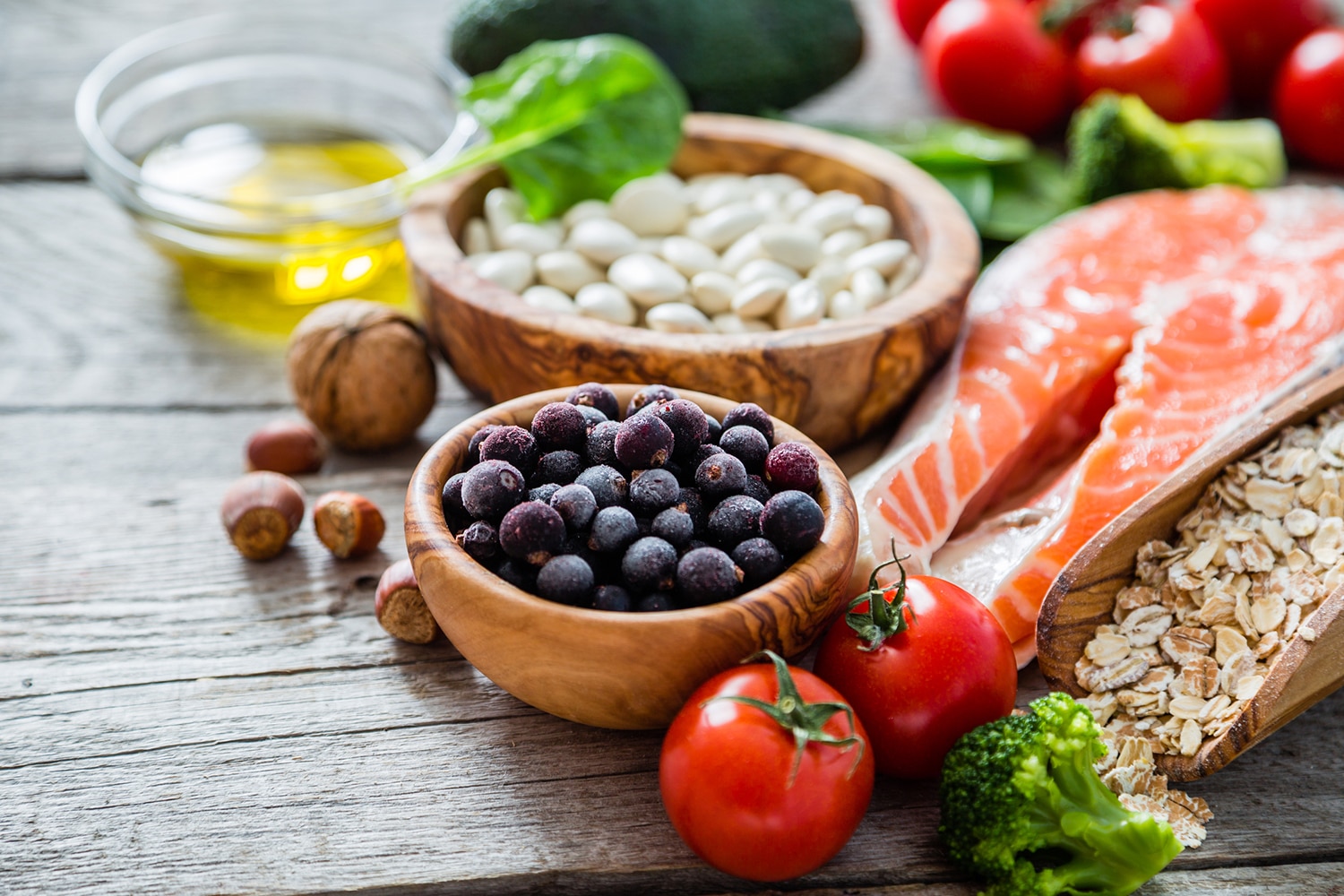Inflammation is the body’s response to injury or infection. In the short term, it can be helpful. Yet chronic inflammation—a state in which the immune system is persistently activated—is a known risk factor for cancer.
Lifestyle factors such as drinking alcohol, smoking and being obese can contribute to chronic inflammation. A study published in the March 2017 issue of the Journal of Nutrition adds to a growing body of research suggesting that certain diets that promote inflammation are associated with increased colorectal cancer risk in some groups.
Incorporate Anti-Inflammatory Foods
Fruits, vegetables, plant-based proteins such as beans or lentils, and whole grains may help to decrease chronic inflammation in the body. Getting more of these anti-inflammatory foods into your diet calls for making changes you can stick with, says registered dietitian Alice G. Bender, head of nutrition programs for the American Institute for Cancer Research. “Start small by swapping out chips at lunch for a green salad or substituting whole wheat for white bread on your sandwich. Over time, little changes add up.”
In the 1990s, 190,963 study participants from California and Hawaii filled out a questionnaire including questions about their diets. The researchers then rated the participants’ diets using the Dietary Inflammatory Index, which categorizes foods based on a literature review of the relationship between diet and inflammatory markers in the blood. In general, foods high in animal fat, animal protein and added sugars lead to more inflammation, while diets rich in fruits, vegetables and whole grains may help reduce inflammation.
Overall, the quartile of people whose diets were rated most pro-inflammatory were 21 percent more likely to develop colorectal cancer over 20 years of follow-up than the quartile of people whose diets contained the least-inflammatory foods. During the study period, 4,388 people—about 2.3 percent of total participants—developed colorectal cancer. (An estimated 4.3 percent of U.S. adults will be diagnosed with colorectal cancer in their lifetime.)
Smashed Chickpea and Avocado Lettuce Wraps
Try this healthy plant-based recipe.
1 ripe medium avocado
1 15.5-ounce can reduced-sodium chickpeas
1 tablespoon fresh lemon juice
2 tablespoons fresh cilantro, finely chopped
2 tablespoons red onion, finely chopped
1 teaspoon cumin
1 celery stalk, finely chopped
Salt and pepper, to taste
4 Boston lettuce leaves
1 medium tomato, sliced
Drain chickpeas and mash to a semi-chunky consistency. Add avocado and lemon juice and continue to mash until well mixed. Stir in cilantro, red onion, celery, cumin, salt and pepper.
Top lettuce leaves with slices of tomato. Divide chickpea mixture into four portions and spoon on top of lettuce leaves.
Reprinted with permission from the American Institute for Cancer Research, www.aicr.org.
Within racial and ethnic groups, the researchers found statistically significant associations between colorectal cancer risk and pro-inflammatory diets for white, Japanese-American and Latino men, but not for African-American and native Hawaiian men. Among women, pro-inflammatory foods were only associated with significantly higher risk in native Hawaiians.
The findings are “just beginning to scratch the surface of dietary inflammation and cancer,” says Brook Harmon, a behavioral scientist at the University of Memphis in Tennessee who led the study. Other risk factors for colorectal cancer include family history, obesity, smoking and being African-American.
Cancer Today magazine is free to cancer patients, survivors and caregivers who live in the U.S. Subscribe here to receive four issues per year.





